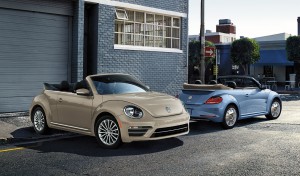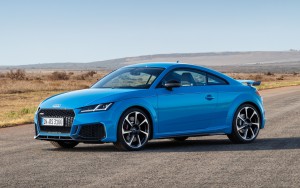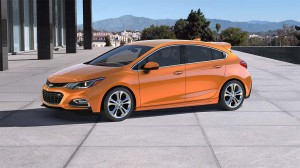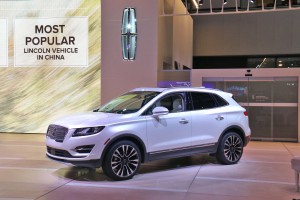
The last of the VW Beetles come in two “final edition” colors and styles, including convertible models.
At the beginning of every year, automakers start rolling out their newest additions to their expansive portfolio of products, hoping to catch lightning in a bottle and produce the next massive selling car, truck or utility vehicle.
When these get added to the existing cadre of products already on dealer lots, it ultimately means that some vehicles will be heading for each automaker’s scrap heap of history.
Some of these vehicles were launched to much acclaim while others were little more than footnotes that got a few minutes in the spotlight at an auto show in Detroit, New York, Paris or Frankfurt. This year is no different.
(End of the Line: Last Volkswagen Beetle Rolls Out This Week)
Fair warning, some readers may want to grab a tissue in case you were planning to buy the 2020 model year version after years of putting it off, but here are the vehicles that are getting the ziggy for the 2020 model year, courtesy of Forbes.
Audi TT. Everyone wants to copy the success of the Mazda Miata and in 1998, the Audi TT was one of many attempts at replicating that success. The rounded little coupe came as a convertible as well. It attracted plenty of attention and plaudits. However, it appears the moment is over as Audi plans to replace it in the future with a new full-electric model as part of its long-term electrification strategy.
BMW 3 Series Gran Turismo, 6 Series Gran Turismo, and 6 Series Gran Coupe. For a while it was thought that the hatchback was back — and it was, but not these four-door coupe/hatchback variations that didn’t look half as handsome as the models upon which they were based. Neither caught on among U.S. buyers, who’d rather drive a sporty SUV these days than a hatchback, Forbes rightfully notes.
Buick Cascada. At one time the convertible was hot and nearly every brand had one; however, this one never really seemed to catch on despite the fact that it earned plenty of critical praise when it hit the scene in 2016. That said, buyers decided that the Cascada isn’t their Buick.
Buick LaCrosse. The large Buick LaCrosse sedan was set to be refreshed for 2020, but like so many other sedans under the General Motors umbrella, it’s going bye-bye in favor of more utility vehicles.
Cadillac CTS. Never a barn burner in terms of sales, the Cadillac CTS is being replaced – almost surprisingly – by another sedan, the new CT5.
Cadillac XTS. Large Cadillac was an almost redundant for decades, but now Cadillac buyers aren’t enthralled by a big ol’ Caddy so this behemoth and its odd front-wheel drive powertrain are done after October.
Chevrolet Cruze. It wasn’t long ago when the big news about the Cruze was that it was getting a – gasp – hatchback version. However, gas prices have remained low for some time now and small cars aren’t welcome anymore, not even a well-done hatchback version of this car. Honda and Toyota are stepping into the void.
Chevrolet Impala. Production of Chevrolet’s largest car will cease in January, and even though the Impala is not the brand’s lowest volume model, sales are at a fraction of what they were in the vehicle’s glory days, Forbes notes.
Chevrolet Volt. Some might consider this the car that started the slowest automotive revolution ever. No, not to hybrids, Toyota did that with the Prius, but the Volt revealed that plenty of automakers needed to take the hybrid and the electric car seriously. The second edition traveled more than 50 miles on a charge, showing a slew of new drivers that an EV could be viable.
(Nissan Adds Another Nail to Convertible Coffin with Plans to Kill 370Z Roadster)
Ford Fiesta. The subcompact arrived as gas prices were sky high. Now they’re not and there are plenty of other utility vehicles that fill this role so it’s going bye-bye. Somewhere an auto journalist or hot hatch fan is bemoaning the death of the Fiesta ST.
Ford Taurus. The Taurus was once the best-selling car in the U.S. Then the name disappeared altogether, before newly hired CEO Alan Mulally pulled the name out of mothballs. However, Ford is dumping its cars and the Taurus is among the first to go. Somewhere an auto journalist or performance sedan fan is bemoaning the death of the Taurus SHO.
Jaguar XJ. This flagship sedan is already done after five decades. A successor designed to wrestle with the Tesla Model S and Porsche Taycan is coming. Whether it will keep the XJ moniker or not isn’t known.
Lincoln MKC and MKT. The compact Lincoln MKC crossover SUV and three-row MKT are being redesigned and give real names: Corsair and Aviator, respectively.
Nissan 370Z Roadster. The coupe Nissan’s long-running sports car (i.e. 240Z, 300Z, 350Z) lives, but the convertible is out.
Nissan Rogue Hybrid. The compact Nissan Rogue SUV is the Japanese brand’s top-seller, but the hybrid model isn’t popular enough to make the cut.
Smart EQ ForTwo. Coming to U.S. shores for the 2008 model year, the tiny Smart ForTwo two-door, two-seat coupe/convertible garnered attention early because it was easy to park. However, an easy-to-park, underpowered, easily shifted around on the freeway two-seater rarely impresses American car buyers. Despite some changes, like a battery-electric powertrain, nothing seemed to endear this little car to the American public.
Toyota Prius C. Toyota’s not killing this off as much as it’s just renaming it. Based on the Yaris subcompact Prius C hybrid is being replaced in showrooms by the new 2020 Corolla Hybrid.
Volkswagen Beetle. Flower power returned in 1998 when VW brought back the updated version of this classic. It sold well for a while, but the second-gen version’s styling was a little less funky and the moment was then over. While it’s going bye-bye again, there are rumors it may rise again as a pure EV.
Volkswagen Golf SportWagen and Golf Alltrack.Station wagons aren’t SUVs. An Americans told VW this clearly with the poor sales of these wagon versions of the compact Volkswagen Golf four-door hatchback and the strong sales of the Atlas.
(GM Will Drop at Least Six Passenger Cars in North American Product Shake Up)




